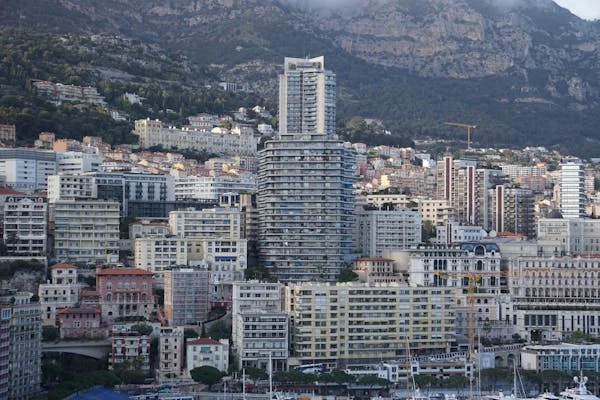Hotel tax on business improvement district south dakota approach to taxation, especially in the hospitality sector, is designed to support economic growth, infrastructure development, and tourism promotion. A critical component of this system is the Business Improvement District (BID) hotel tax. This tax plays a key role in funding improvements and enhancing the appeal of designated areas, particularly in cities and towns with a strong focus on tourism.
This article explores the structure, application, benefits, and challenges of hotel taxes in BIDs across South Dakota.
What Is a Business Improvement District (BID)?
Key features of BIDs include:
- A focus on enhancing economic activity within the district.
- Funding infrastructure improvements such as lighting, signage, and sidewalks.
- Marketing campaigns to attract tourists and businesses.
- Event sponsorships and public space beautification.
South Dakota has implemented BIDs in cities like Rapid City, Sioux Falls, and Deadwood to create thriving hubs for residents and visitors.
Overview of Hotel Taxes in South Dakota
South Dakota has a range of taxes applied to the hospitality industry, including sales taxes, lodging taxes, and BID hotel taxes. These taxes are essential for funding state and local initiatives that promote tourism, improve infrastructure, and enhance community services.
|
Tax Type |
Purpose |
Rate |
|
State Sales Tax |
General state revenue |
4.5% |
|
Tourism Promotion Tax |
Supports state-level tourism marketing |
1.5% |
|
Municipal Lodging Tax |
Local lodging improvements and services |
Varies (1-3%) |
|
BID Hotel Tax |
BID-specific improvements and projects |
Up to $2 per night |
The BID hotel tax differs from other taxes in that it is a flat fee per occupied room night, rather than a percentage of the total bill.
Purpose of the BID Hotel Tax
The BID hotel tax is implemented to fund specific projects and initiatives within the designated district. These funds are earmarked for:
- Tourism Development: Marketing campaigns, event sponsorships, and visitor center operations.
- Infrastructure Improvements: Streetscaping, public art installations, and park upgrades.
- Community Engagement: Hosting events and activities that bring residents and tourists together.
By investing in these areas, BIDs create a more appealing environment for both visitors and local businesses.
How Does the BID Hotel Tax Work in South Dakota?
Lodging establishments such as hotels, motels, and bed-and-breakfasts within the designated district collect the BID hotel tax. Here’s a step-by-step breakdown of its implementation:
- Flat Fee Structure:The BID tax is generally a fixed amount, typically up to $2 per night per occupied room.
- Collection:Lodging establishments collect the tax directly from guests at the time of their stay. This fee is itemized separately on invoices to ensure transparency.
- Reporting and Remittance:Businesses report the collected BID taxes to the local government, which then allocates the revenue for approved projects within the BID.
- Use of Funds:The funds are invested in initiatives that align with the BID’s goals, such as marketing campaigns, infrastructure upgrades, and tourism support.
Benefits of BID Hotel Taxes
The BID hotel tax has several benefits for communities businesses and visitors alike:
Boosts Local Tourism
The tax revenue supports marketing efforts that attract more visitors to the area. These campaigns may include digital advertising, print media, and promotional events.
Enhances Public Spaces
Improving sidewalks, parks, lighting, and other infrastructure makes the district more welcoming for residents and tourists.
Supports Economic Growth
A well-maintained and vibrant BID attracts businesses, increases foot traffic, and encourages visitor spending.
Creates a Sense of Community
Hosting events and beautifying public spaces fosters community pride and enhances the overall quality of life.
Challenges of BID Hotel Taxes
While the BID hotel tax offers many advantages, it also presents some challenges:
Potential Impact on Hotel Prices
The added fee may deter budget-conscious travelers, especially in competitive markets where lower prices are a priority.
Administrative Complexity
Hotels must manage the collection, reporting, and remittance of the BID tax, which adds to their operational workload.
Ensuring Transparency
It is essential to maintain transparency and accountability in the allocation of BID funds to prevent misuse and maintain stakeholder trust.
Balancing Stakeholder Needs
BID-funded projects must balance the needs of tourists, local businesses, and residents, which can be challenging in diverse communities.
Conclusion
The hotel tax on business improvement district south dakota is an essential mechanism for supporting local development, tourism, and infrastructure. While the tax adds a small cost for guests, its benefits to the community are significant, fostering vibrant, economically thriving districts.
By understanding the purpose, application, and benefits of BID hotel taxes, businesses and visitors can contribute to the continued growth and success of South Dakota’s communities.
FAQs
What is the BID hotel tax rate in South Dakota?
The BID hotel tax is a flat fee, typically up to $2 per occupied room per night, depending on the district.
Are all hotels in South Dakota required to collect BID taxes?
How is the BID hotel tax revenue spent?
Do Airbnb and other short-term rentals collect BID taxes?
This varies by district. Some BIDs include short-term rentals, while others do not.
Is the BID hotel tax mandatory for guests?
How do BIDs benefit local communities?
BIDs enhance public spaces, attract visitors, and support local businesses, contributing to economic and community growth.
Can hotel owners influence how BID funds are spent?
Yes, local businesses, including hotels, often participate in decision-making processes regarding BID projects.
What happens if a hotel fails to collect or report BID taxes?
Non-compliance can result in penalties, fines, or legal action by local authorities.





